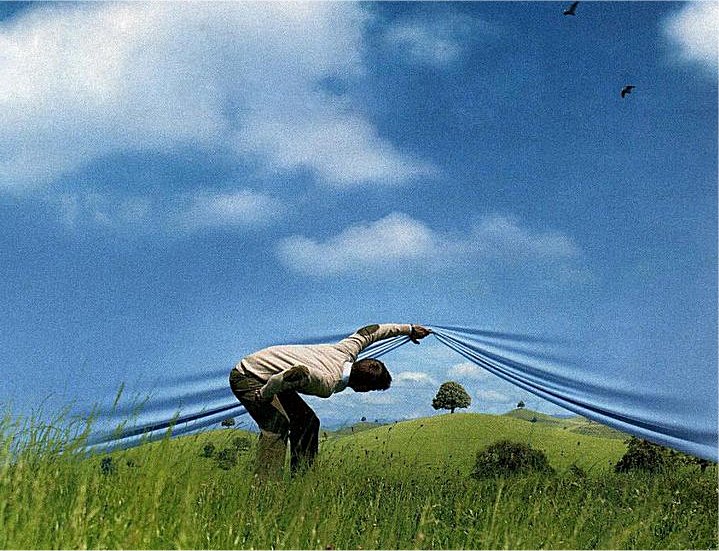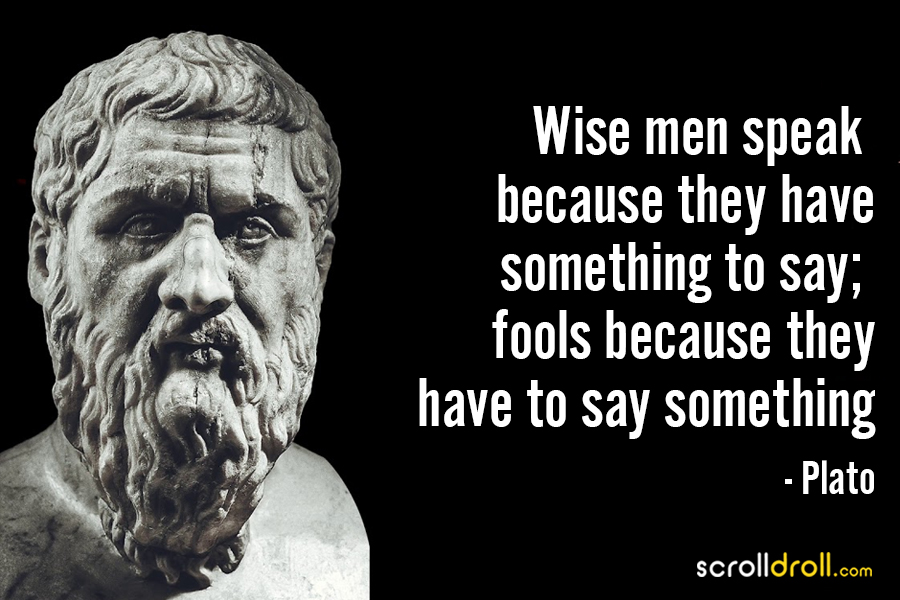Unlocking Wisdom: Plato's Allegory of the Cave Explained
The pursuit of knowledge has been a fundamental aspect of human existence since time immemorial. Throughout history, philosophers have grappled with profound questions about reality, perception, and the nature of truth. In the realm of philosophical inquiry, one ancient allegory has stood the test of time as a beacon of enlightenment: Plato's Allegory of the Cave.
 |
| Allegory of the Cave. 📷 |
The Allegory Unveiled: Shadows on the Cave Wall
Imagine a cave—a dark, cavernous realm where prisoners have dwelled since birth. These prisoners are bound in such a way that they can only gaze upon the cave wall in front of them. Behind them lies a blazing fire, and between the prisoners and the fire, there is a pathway.
As objects pass by on the path, they cast shadows on the cave wall, creating a reality for the prisoners. For them, these shadows are the only truth they've ever known. They've never seen the outside world, the sun, or the objects themselves—only the flickering, distorted images dancing on the wall.
 |
| 📷source |
What Plato Was Conveying: The Illusion of Reality
Plato's allegory is a metaphor for the human condition, highlighting the limitations of perception and the illusory nature of reality. The prisoners represent humanity, confined to the cave of ignorance. The shadows symbolize the deceptive appearances and false beliefs that shape our understanding of the world.
 |
| The Illusion of Reality. 📷 |
The fire in the allegory corresponds to the limited light of our intellectual insight, which creates a reality that we accept as truth, but in reality, it's just a distorted projection. The pathway leading to the cave's entrance represents the philosophical journey towards enlightenment and truth.
 |
| 📷source |
Breaking the Chains: The Journey to Enlightenment
Plato's message is clear: we must transcend the confines of our own caves by breaking the chains of ignorance. The path to enlightenment involves turning away from the illusions of the cave wall, venturing outside, and facing the blinding radiance of the sun—the ultimate source of truth and knowledge.
In modern terms, this allegory speaks to the importance of questioning, critical thinking, and seeking knowledge beyond what is readily apparent. It encourages us to escape the shadows of ignorance and explore the world with an open and inquisitive mind.
 |
| 📷source |
Relevance Today: Plato in the Digital Age
The Allegory of the Cave remains relevant in the digital age, where information is abundant, and misinformation abounds. Just as the prisoners were captive to the cave's illusions, we can become captivated by the screens that surround us, accepting information at face value without critical examination.
 |
| The new prisoners of ideology. 📷source |
Plato's allegory urges us to be discerning, to question, and to seek the truth beneath the shadows of falsehood. In an era of fake news and echo chambers, the pursuit of knowledge and enlightenment is more vital than ever.
 |
| Becoming a better critical thinker. 📷source |
The Journey Continues
Plato's Allegory of the Cave has illuminated the minds of thinkers for centuries, and its brilliance endures today. It reminds us that the quest for knowledge is an unending journey, one that requires us to challenge our assumptions and explore the blinding light of truth.
 |
| Knowledge: a Journey. 📷source |
As we step out of our modern caves of ignorance, let us remember Plato's timeless wisdom: the pursuit of truth is a journey worth taking, no matter how challenging or uncomfortable it may be. By embracing the allegory's lessons, we can unlock the shackles of illusion and embark on a path of enlightenment.
 |
| 📷source |
What are your thoughts on Plato's Allegory of the Cave? How do you see its relevance in today's world? Share your insights and join the conversation.
In this exploration of Plato's Allegory of the Cave, we've bridged the ancient wisdom of philosophy with the demands of the digital age. The shadows may flicker, but the pursuit of truth remains undiminished.



.jpg)
